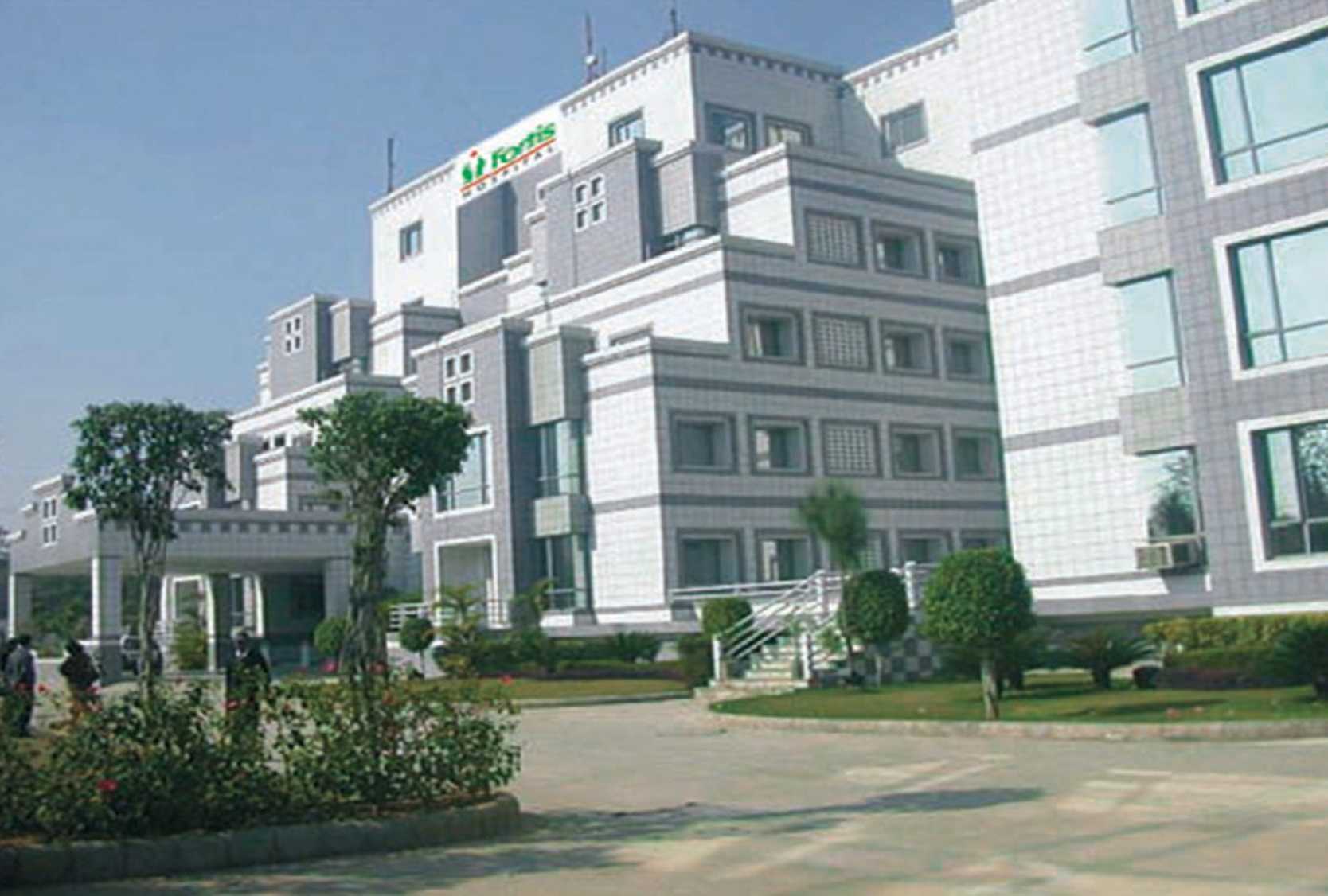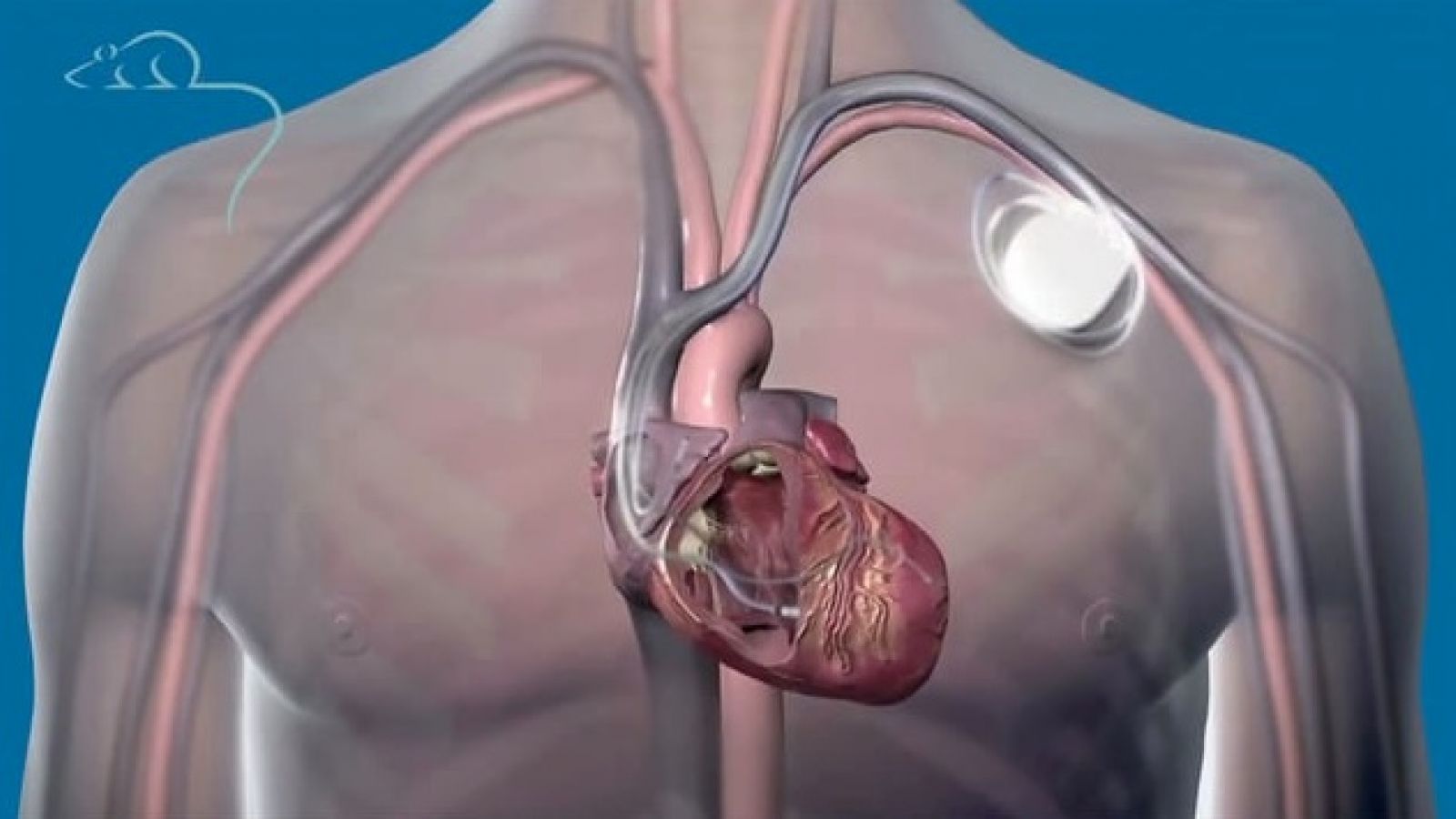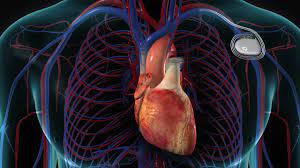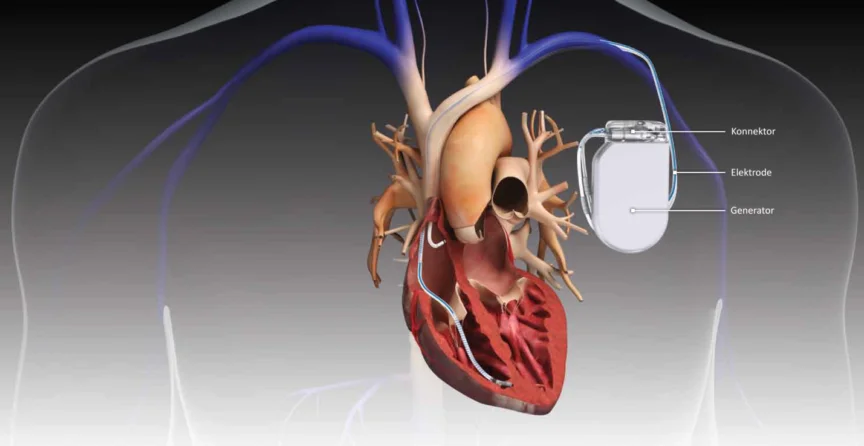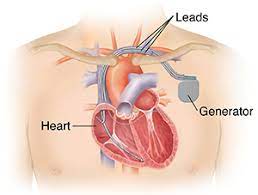Biventricular Pacemaker Surgery
Fortis Flt. Lt. Rajan Dhall Hospital, Vasant Kunj, Delhi, Delhi, India
-
Our Price USD 3032
-
Hospital Price USD 3192
-
You Save : USD 160
Booking Amount: USD 303. Pay Remaining 90% at the hospital.
- Explore benefits & save additional 30%
Additional Credit
Among the important extras we offer as part of the Additional Credit are the following:
-
Site Tourism For The Patient & Attendant
-
Airport Pick & Drop Service
-
Ambulance service at airport
-
Priority appointments with The Doctor
-
Cancel Easily Anytime with Full Refund
-
Room Upgradation
-
Free Online Doctor Consultation Valued at USD 20
-
Free hotel Stay for 5 to 7 days Accordingly
-
Welcome Kit at Arrival
-
Interpreter
-
Medical Visa Assistance
What is Included?
- Doctor consultation charges
- Lab tests and diagnostic charges
- Room charges inside hospital during the procedure
- Surgeon Fee
- Cost of implant
- Nursing charges
- Hospital surgery suite charges
- Anesthesia charges
- Routine medicines and routine consumables (bandages, dressings etc.)
- Food and Beverages inside hospital stay for patient and one attendant.
What is not Included?
- Extra Radiology Investigations
- Healthcare Professionals Charges of other consultations.
- Other Requested Services such as Laundry etc.
- Additional Pharmaceutical Products and Medicines After Discharge from Hospital.
- Management of Conditions Unrelated to Procedures or Pre-Existing.
- The cost of any additional implants will be in addition to the package cost.
Package Description
Pacemaker Procedure Biventricular
Cardiac resynchronization therapy (CRT) is a kind of heart failure treatment that involves a biventricular pacemaker. This pacemaker provides electrical pulses to the ventricles at the same moment, causing them to pump at the same time. In the chest, a biventricular pacemaker is implanted, which is connected to three small cables known as leads. The leads are inserted into several chambers of your heart. If your heartbeat is irregular, the pacemaker transmits a non-painful signal through the leads to correct the problem. If your heart is beating too slowly, the pacemaker can speed it up.
In some cases, you may get a pacemaker that is combined with a device to shock your heartbeat back to a normal rhythm if it is dangerously fast. The device is called an implantable cardioverter-defibrillator, or ICD. It can prevent sudden death.
If your heartbeat is dangerously rapid, you may need a pacemaker linked with a device that shocks it back to a regular rhythm. An implanted cardioverter-defibrillator, or ICD, is the name for the device. It has the potential to avert abrupt death.
During minor surgery, your doctor will implant a pacemaker in your chest. A tiny cut (incision) is made in your chest by your doctor. The doctor inserts the leads into a vein and into the heart. The leads are then connected to the pacemaker by your doctor. The pacemaker is implanted in your chest and the wound is closed by your doctor. The pacemaker is also programmed by your doctor.
Disease Overview
Heart failure
When the heart muscle doesn't pump blood as well as it should, it causes heart failure, also known as congestive heart failure. When this happens, blood can back up in the lungs and fluid can build up, causing shortness of breath.
Certain cardiac disorders, such as restricted arteries in the heart (coronary artery disease) or high blood pressure, cause the heart to weaken or stiffen over time, making it unable to effectively fill and pump blood.
Signs and Symptoms:
Heart failure can be long-term (chronic) or develop quickly (acute).
The following are some of the indications and symptoms of heart failure:
- When you are active or lying down, you may have shortness of breath.
- Weakness and exhaustion
- Legs, ankles, and feet are swollen.
- Heartbeats that are fast or irregular
- Exercise ability is hampered.
- Coughing or wheezing that is persistent, with white or pink blood-tinged mucous
- Swelling of the abdomen (abdomen)
- Fluid retention causes fast weight gain.
- Nausea and an inability to eat
- Concentration problems or a lack of attentiveness
- Chest pain if heart failure is triggered by a heart attack
Disease Causes:
Any of the illnesses listed below can harm or weaken your heart, resulting in heart failure. Some of these may be present even if you aren't aware of it:
Coronary artery disease: It is the most frequent type of heart disease and the leading cause of heart failure.The illness is caused by fatty deposits forming in the arteries, which decrease blood flow and can result in a heart attack.
High Blood Pressure: Your heart has to work harder than it should to pump blood throughout your body if your blood pressure is high. This increased exertion might cause your heart muscle to become too stiff or weak to effectively pump blood over time.
Faulty Heart Valves: The heart's valves keep blood flowing in the right direction. A weakened heart is caused by a damaged valve, which can be caused by a heart defect, coronary artery disease, or a heart infection.
Damage to the heart muscle: Heart muscle damage can have many causes, including certain diseases, infection, heavy alcohol use, and the toxic effect of drugs, such as cocaine or some drugs used for chemotherapy. Genetic factors also can play a role.
Myocarditis: virus such as the COVID-19 virus, is the most prevalent cause of myocarditis, which can result in left-sided heart failure.
Arrhythmias: Abnormal cardiac rhythms can cause your heart to beat excessively quickly, putting additional strain on it. Heart failure can also be caused by a sluggish heartbeat.
Diagnosis:
Your doctor will take a thorough medical history, assess your symptoms, and do a physical examination to diagnose heart failure. Your doctor will also look for heart failure risk factors such as high blood pressure, coronary artery disease, or diabetes.
Your doctor can listen to your lungs for symptoms of fluid accumulation (lung congestion) and your heart for murmurs (whooshing noises) that might indicate heart failure. Your veins in your neck may be examined, and fluid accumulation in your belly and legs may be checked.
Following the physical examination, your doctor may prescribe some of the following tests.
Blood test: Blood tests are used to screen for indicators of heart disease.
Echocardiogram: An echocardiography is a type of ultrasonography of the heart. Sound waves are employed to produce moving images of the heart. An echocardiography allows doctors to examine the aortic valve and aorta in greater detail. It can assist in determining the source of aortic valve disease as well as the severity of the condition.
Electrocardiogram (ECG or EKG): The electrical activity of the heart is recorded in this noninvasive examination.
Chest X-ray: It can provide information about the heart and lungs' health.
Cardiac MRI: It creates precise pictures of the heart using magnetic fields and radio waves.
Cardiac computerized tomography (CT) scan: In this, Series of X-rays are used to obtain detailed pictures of the heart and heart valves. This imaging approach may be used by doctors to determine the size of the aorta and examine the aortic valve in greater detail.
Coronary Angiogram: This test involves inserting a thin, flexible tube (catheter) into a blood artery, commonly in the groyne, and guiding it to the heart arteries. A dye (contrast) is administered into the catheter to assist the doctor locate blockages by making the arteries appear more clearly on an X-ray
Myocardial biopsy: A doctor inserts a thin, flexible cable into a vein in the neck or groyne and takes extremely small sections of the heart muscle for inspection during this procedure. This test may be used to diagnose heart failure caused by certain types of heart muscle diseases.
Disease Treatment:
Heart failure is a chronic condition that requires ongoing care. Heart failure symptoms and indicators can improve with medication, and the heart can occasionally get stronger.
Doctors can occasionally address the underlying cause of heart failure. Heart failure can be reversed by mending a heart valve or managing a rapid heart beat, for example. However, for the majority of patients, heart failure therapy is a combination of the correct drugs and, in some cases, the use of devices that help the heart pulse and contract effectively.
Medication: Heart failure is generally treated with a mix of drugs. You could take one or more drugs, depending on your symptoms, such as: ACE inhibitors, receptor blockers, Beta blockers, Diuretics etc.
To cure the underlying condition that caused heart failure, surgery or other treatments to implant cardiac devices may be advised. The following surgeries or other treatments may be used to treat heart failure:
- Coronary bypass surgery
- Heart valve repair or replacement
- Implantable cardioverter-defibrillators (ICDs)
- Cardiac resynchronization therapy (CRT)
- Ventricular assist devices (VADs)
- Heart transplant
Information related to Treatment
Package Details
Days in Hospital
4 Days
Days in Hotel
*
10 Days
Room Type
Private
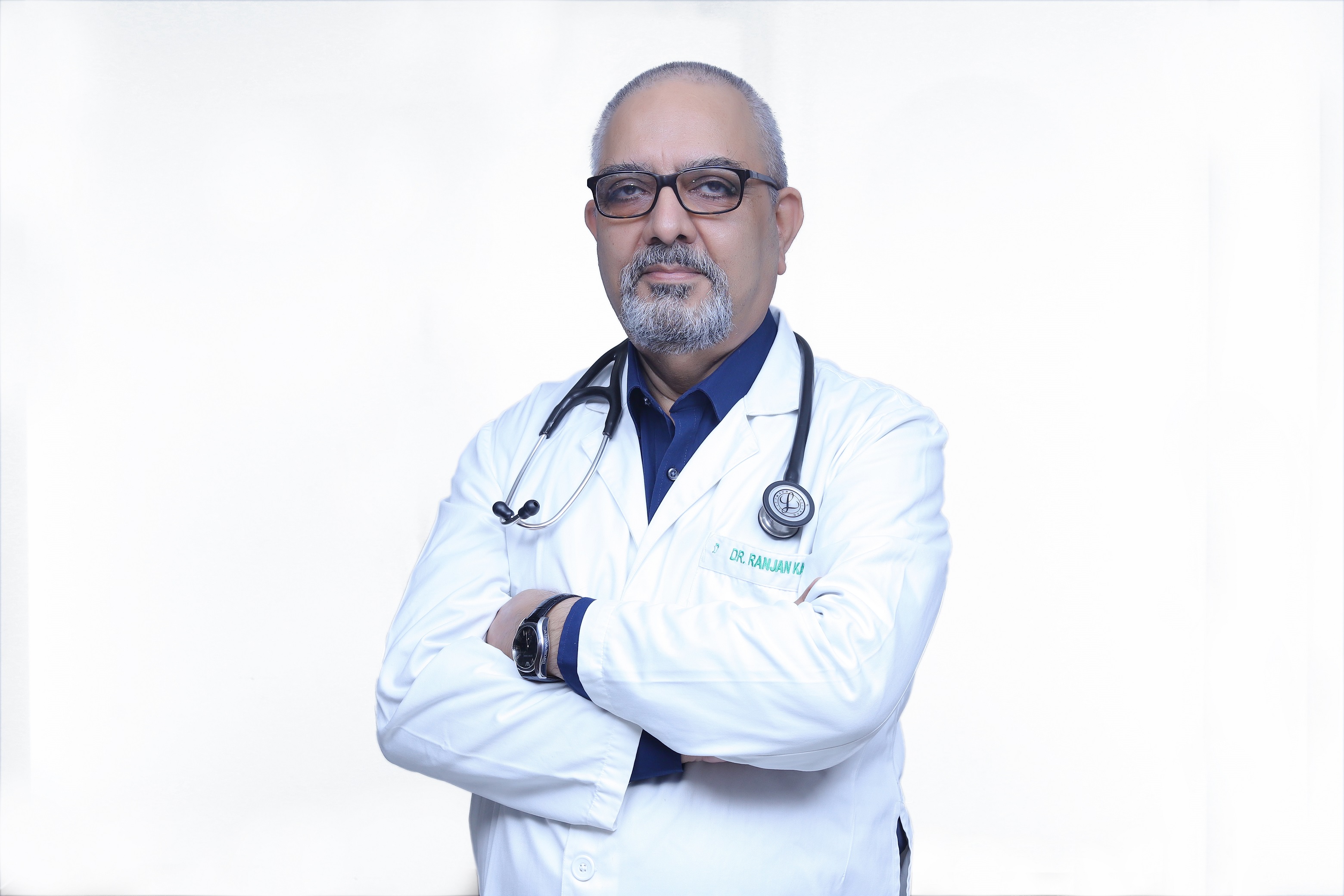
Treating Doctor
Dr Ranjan Kachru
Cardiologist- Vascular Surgeon, Vascular Surgeon, Ventricular Assist Device Implantation, Coronary Angiogram, Stress Ecechocardiography, Hypertriglyceridemia, ECG analysis, Hypertriglyceridemia, Coronary Angiogram
New Delhi, India
38 Years of Experience
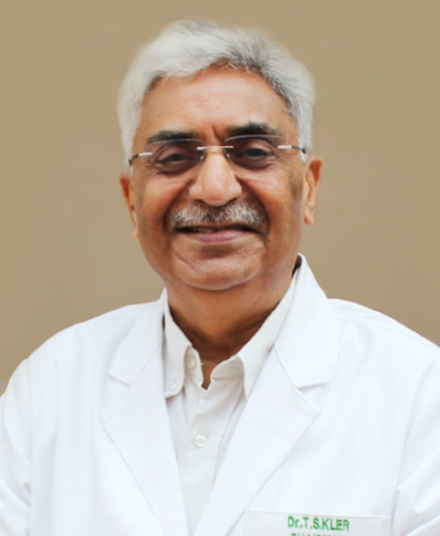
Treating Doctor
Dr. Tarlochan Singh Kler
Cardiologist- Coronary Artery Disease, Cardiac Arrhythmias, Bradycardia, Blocked Arteries, Tachycardia, Angina, Atherosclerosis
New Delhi, India
35 Years of Experience
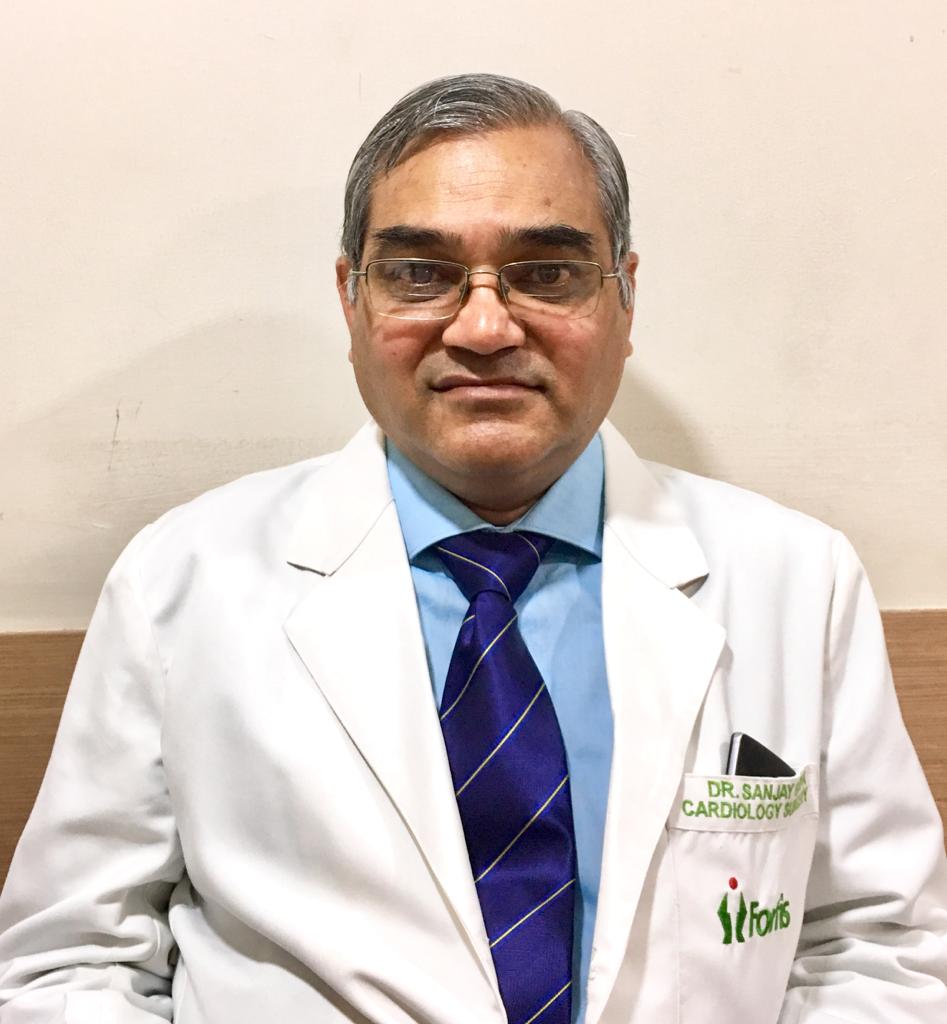
Treating Doctor
Dr Sanjay Gupta
Cardiac Surgeon- CABG, MIDCAB Sugery, Heart valve replacement, Aortic root replacement, Mitral Valve Replacement & Repairs
New Delhi, India
27 Years of Experience
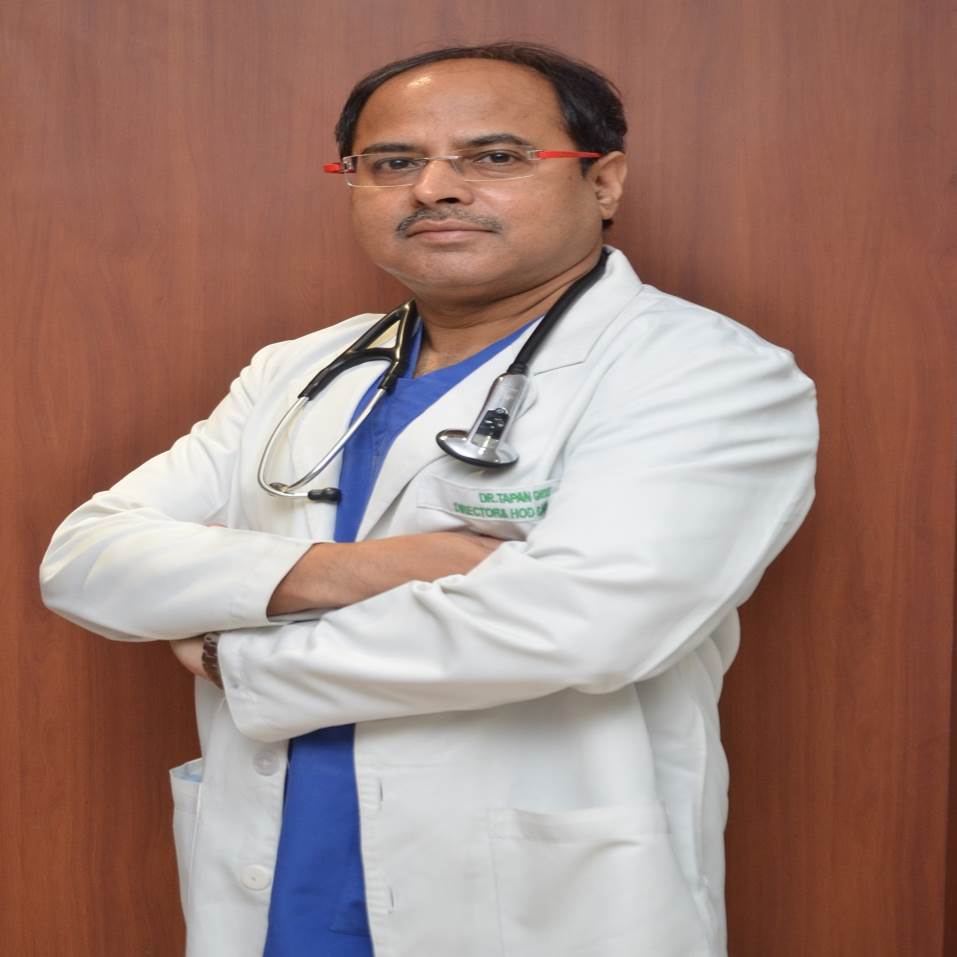
Treating Doctor
Dr Tapan Ghose
Cardiologist- Pacemaker Implantation, Angiography, Vascular Surgeon, Vascular Surgeon, Mitral valve replacement, Cardiac Ablation, Cardiac Catheterisation, Cardiac Electrophysiology, Carotid Angioplasty And Stenting, Implantable Cardioverter-Defibrillators (ICDS), Pacemaker Implantation, Bypass Surgery, Coronary Bypass Surgery, Stent Surgery, Transradial coronary intervention, Lipidology, Hip Disorders, Tre Cardioversion Procedure, Intra - Arterial Thrombolysis Procedures, Pacemaker Implantation, Cardiac Catheterisation, Carotid Angioplasty And Stenting, Pacemaker Implantation, Angiography, Cardiac Ablation, Celebral Palsy, Pacemaker Implantation, Bypass Surgery, Cardiac Catheterisation
New Delhi, India
26 Years of Experience

